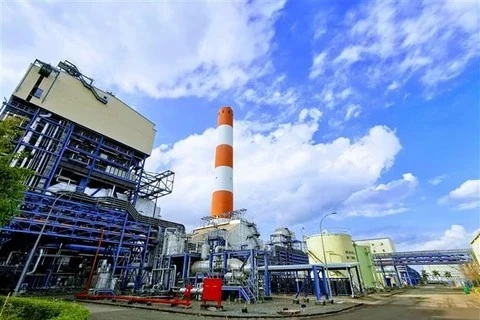LNG power projects face multiple hurdles
LNG power projects in Vietnam are currently grappling with many obstacles, ranging from bureaucratic delays to issues with power purchase agreements (PPAs), leading to significant project implementation slowdowns.

The Southeast Asian economy considers the development of LNG power a matter of national energy security. According to Decision 500/QĐ-TTg, LNG power is expected to account for 14.9% of total power capacity, supplying 83 billion kWh by 2030.
However, the implementation of these projects faces numerous hurdles.
Challenges
La Hong Ky from the State Steering Committee Office for Energy Projects emphasised that these critical LNG power projects face various challenges that need to be resolved.
Ky highlighted that several provinces, such as Thanh Hoa, Nghe An, and Ninh Thuan, have yet to select investors, due to delays in investment policy approval and tendering processes. Additional challenges include land clearance, adjustments to local planning, land handover and leasing for project sites and transmission lines required to synchronise power evacuation.
For approved investors, securing financing remains a major challenge.
Most LNG power projects, except Nhon Trach 3 and 4, rely entirely on PPAs to obtain loans. However, none of the LNG power projects have successfully negotiated or signed PPAs with EVN (Vietnam Electricity) due to unresolved issues, including concerns over the stability of long-term energy quantity under contract (QC), transferring gas purchase commitments into power purchase agreements and aligning gas pricing mechanisms with electricity pricing.
Foreign investors also demand additional government guarantees, such as foreign currency conversion guarantees, payment guarantees, contract termination assurances with EVN and guarantees against delays in transmission line construction, he said.
According to Ky, synchronisation is vital for the success of LNG project chains. Yet, these projects are often subject to numerous uncontrollable external factors, prolonged timelines, technological and policy risks, involvement of multiple stakeholders, and a complex legal environment involving multiple laws. These challenges increase costs and project durations and create significant barriers for investors.
To ensure timely project implementation, he said the country must establish mechanisms and policies to address the outlined challenges and identify an appropriate energy structure.
Reforms
Nguyen Duc Tung from the Institute for Strategic Research and Industrial Policy proposed reviewing and refining the legal and management frameworks for LNG power projects. This involves amending regulations within Việt Nam's Investment Law, Bidding Law, Construction Law, Environmental Law and Planning Law to streamline project implementation. He added that clear and practical policies are essential to ensure effective management, build market access and distribution systems, and foster international cooperation.
He emphasised the importance of a dual strategy combining domestic gas exploration with imports to maintain a stable and long-term LNG supply. Prioritising the exploration and development of new gas fields will not only reduce dependence on imports but also unlock domestic resource potential.
Over the longer term, the country should explore the feasibility of establishing LNG production facilities, provided adequate technological, financial, and human resources are available.
Vietnam should also implement mechanisms for LNG imports and strategically position LNG power plants nationwide to minimise transportation costs and enhance fuel absorption efficiency. Additionally, transferring LNG pricing into electricity pricing within PPAs is fundamental to ensuring the economic viability and attractiveness of LNG power investments.
The country has identified 13 LNG power projects as critical infrastructure and approved by the Prime Minister./.








